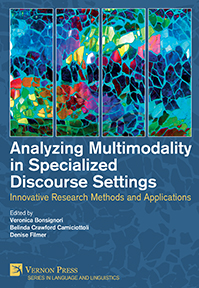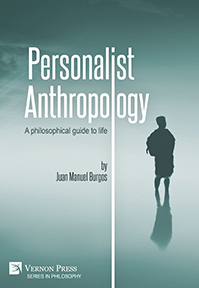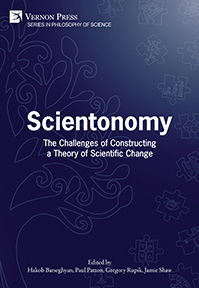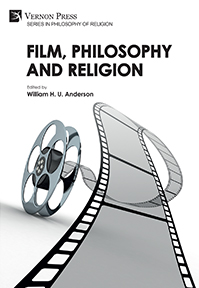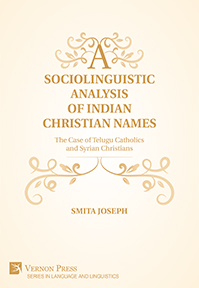Search
Browse
by Publication status
by Subject
Anthropology (26) Art (124) Business and Finance (26) Cognitive Science and Psychology (54) Communication and Journalism (46) Economics (62) Education (67) History (149) Human Geography (22) Interdisciplinary (42) Language and Linguistics (129) Law (16) Music Studies (18) Philosophy (157) Political Science and International Relations (103) Sociology (307) Statistics and Quantitative Methods (20)by Series
Series in Literary Studies (65) Series in Philosophy (59) Series in Education (51) Series in Sociology (44) Series in Politics (32) Series in World History (32) Bridging Languages and Scholarship (31) Series in Language and Linguistics (25) Cognitive Science and Psychology (20) Series in American History (20) Series in Philosophy of Religion (20) Series in Art (19) Critical Perspectives on Social Science (16) Series in Cinema and Culture (16) Curating and Interpreting Culture (15) Series in Critical Media Studies (14) Series on the History of Art (14) Series in Anthropology (13) Series in Business and Finance (13) Economics (13) Series in Music (12) Series in Communication (9) Series in Performing Arts (9) Philosophy of Personalism (8) Series in Law (8) Series in Economic Methodology (7) Series on Climate Change and Society (7) Women's Studies (7) Classics in Economics (6) Series in Economic Development (6) Philosophy of Forgiveness (5) Series in Built Environment (5) Series in Economic History (5) Series in Social Equality and Justice (5) Series in Philosophy of Science (4) Series on the History of Science (4) Serie En Estudios Literarios (3) Serie en Sociología (3) Series in Contemporary History (3) Series in Creative Writing Studies (3) Series in Design (3) The Interdisciplinary Built Environment (3) Serie en Comunicación y Medios (2) Serie en Historia (2) Series in Heritage Studies (2) Series in Innovation Studies (2) Series in Philosophy of Race (2) Serie en Ciencias Políticas (1) Serie en Entorno Construido (1) Serie en Estudios Culturales (1) Serie en Filosofía (1) Serie en Filosofía de la Ciencia (1) Serie en Música (1) Series in Classical Studies (1) Series in Economics of Technological Change (1) Series in Urban Studies (1)by Language
English Spanishby Author
Browsing with filters
Analyzing Multimodality in Specialized Discourse Settings
Innovative Research Methods and Applications
Edited by
Veronica Bonsignori, University of Rome “Foro Italico”, Rome, Italy et al.
Availability: In stock
200pp. ¦ $81 £63 €69
Contemporary society has witnessed radical changes in the field of communications in terms of how messages and meanings are disseminated. Digitalization and the Internet have signalled an exponential rise in the circulation of multimodal texts in which different semiotic resources are orchestrated together to construct meaning in all areas of social life, across languages and cultures, and in diverse specialized discourse domains. This has foregrounded the need to examine the semiotic functions, affordances, and issues at stake in a range of multimodal discourse forms, while simultaneously highlighting the importance of critical multimodal literacy in audiences and learners. This volume develops and extends pioneering research on the intersection between multimodality and specialized discourse. Seven newly commissioned studies offer innovative perspectives on multimodal research methodologies and applications in a variety of ESP (English for Specific Purposes) contexts for practitioners and scholars alike. The volume offers a glimpse at future directions in this dynamic and ever-evolving area of investigation focusing on the synergy between verbal and non-verbal modes of communication in the digital age. Each chapter explores an original area of application: academic, economic, scientific, marketing, legal, medical, and political. The contributors approach multimodality from a range of theoretical and methodological viewpoints including synchronic and diachronic corpus-based and corpus-aided studies, critical discourse analysis, and systemic functional linguistics. Analytical tools such as multimodal (critical) discourse analysis, multimodal transcription, and multimodal annotation software capable of representing the interplay of different semiotic modes - speech, intonation, direction of gaze, facial expressions, gesturing, and spatial positioning of interlocutors - are employed. The diversity of research strands contained in the volume illustrates just some of the vast areas of multimodal knowledge dissemination that are still unmapped. As a cornerstone of communication, multimodality needs exploring in all its facets. These contributions aim to further that cause.
Personalist Anthropology: A philosophical guide to life
Juan Manuel Burgos, Universidad Villanueva, Spain
Availability: In stock
311pp. ¦ $64 £47 €53
Philosophical personalism has generated a very powerful field of study in the twentieth and twenty first centuries but has not produced a systematic exposition. This book fills this big gap by offering for the first time a full systematic personalistic vision of the human person. This ambitious volume offers a pedagogical and integrated exposition of philosophical personalism, answering vital questions about human identity and existence in a way that the reader (or student) can achieve an integrated view of the person. The book points to the real life of each person so that, by partially unraveling the mystery of the personal being, it becomes a philosophical guide for life. For these reasons, the book can be used both for academic purposes, as a manual of philosophy of man or for personal enlightenment. Divided in five parts, the first part of the book works as an introduction, offering an overview of the human person and of the notion of person. The second part describes the internal structure of the human being addressing topics as corporeity as a personal fact; sensibility and the senses; affectivity; intelligence; freedom understood as choice and self-determination and, finally, the personal self. The third part analyses the person in action and some special types of action such as work and language. The fourth part deals with interpersonal relationships beginning with I-You relationship (friendship, love) and following with the family and the social structure. Finally, part five deals with the so-called ultimate questions, that is, those that decide the final meaning of each person’s life, namely, time, death, immortality, and religion.
Scientonomy: The Challenges of Constructing a Theory of Scientific Change
Edited by
Hakob Barseghyan, University of Toronto et al.
Availability: In stock
281pp. ¦ $84 £65 €72
During the so-called ‘historical turn’ in the philosophy of science, philosophers and historians boldly argued for general patterns throughout the history of science. From Kuhn’s landmark "Structure of Scientific Revolutions" until the "Scrutinizing Science" project led by Larry Laudan, there was optimism that there could be a general theoretical approach to understanding the process of scientific change. This optimism gradually faded as historians and philosophers began to focus on the details of specific case studies located within idiosyncratic historical, cultural, and political contexts, and abandoned attempts to uncover general patterns of how scientific theories and methods change through time. Recent research has suggested that while we have learned a great deal about the diversity and complexity of scientific practices across history, the push to abandon hope for a broader understanding of scientific change was premature. Because of this, philosophers, historians, and social scientists have become interested in reviving the project of understanding the mechanism of scientific change while respecting the diversity and complexity that has been unveiled by careful historical research over the past few decades. The chapters in this volume consider a particular proposal for a general theory of how scientific theories and methods change over time, first articulated by Hakob Barseghyan in "The Laws of Scientific Change" and since developed in a series of papers by a variety of members of the scientonomy community. The chapters consider a wide range of issues, from conceptual and historical challenges to the posited intellectual patterns in the history of science, to the possibility of constructing a general theory of scientific change, to begin with. Offering a new take on the project of constructing a theory of scientific change and integrating historical, philosophical, and social studies of science, this volume will be of interest to historians, philosophers, and sociologists of science.
Film, Philosophy and Religion
Edited by
William H. U. Anderson, Concordia University of Edmonton in Alberta
Availability: In stock
454pp. ¦ $91 £71 €78
Hollywood is a $40 billion annual business, one that is highly influential in culture. If we want to know who we are as individuals and a society, what we believe and what we value, we need to know and understand Hollywood and film. Make no mistake, Hollywood is neither philosophically, politically, nor morally neutral! Many studies demonstrate how movies “affect” us long before we have thought it through. In other words, Hollywood “smuggles” all kinds of ideas into our minds and hearts without us even knowing it. While Hollywood may be the biggest and most influential in the world, this book will demonstrate the growing international influence of film from India (Bollywood), Nigeria (Nollywood), Zimbabwe (Zollywood) and Yesilçam (Turkey). 'Film, Philosophy and Religion' explicitly and implicitly takes a philosophical approach to analyzing film theoretically and methodologically. There are topic and film-specific chapters that take a theological approach, and others that explore ideas like Affect, Axiology, Art Reflecting the Artist and Transcendence (Spirituality) of Film. Hermeneutics also have a central role in the book, including films based on biblical texts that act as interpretations of these texts and fill in the blanks (albeit speculatively by way of script and directors). Chapters also explore the philosophy of aesthetics and film realism which end with theology, while other chapters explore the incompatibility of science with religion, as well as a chapter on the timely topic of rape in Turkish film. The book’s scope goes from the “Horror of Evil in Ridley Scott’s Alien Universe” to “Love Can Thaw a Frozen Heart: The Philosophy of Love in the Frozen Films” (Disney Princess Narratives). This book represents international films and scholars. The diverse perspectives from theist to atheist—and everything in-between—are sure to spark thinking and generate talking points that provide something for everyone in an accessible format. It will be of great interest to university students and professors, scholars, seminaries, and the general public.
A Sociolinguistic Analysis of Indian Christian Names: The Case of Telugu Catholics and Syrian Christians
Smita Joseph, The English and Foreign Languages University, Hyderabad, India
Availability: Withdrawn
189pp. ¦ $46 £34 €38
This book gives a sociolinguistic account of Syrian Christian and Telugu Catholic personal names. Unlike previous works on the linguistic or sociolinguistic analysis of the personal names of Indian Christians, which have mainly used a reflexive approach to analyse names, this book takes a constitutive approach by analysing the personal names of two Indian Christian communities (Telugu Catholics and Syrian Christians) from the perspective of community members. This novel approach provides greater insights into individuals’ motivations for naming and how names are used to create social identities. 'A Sociolinguistic Analysis of Indian Christian Names: The Case of Telugu Catholics and Syrian Christians' also provides a historical background of how names have evolved in these communities and explores the adaptation strategies used by Indian Christians through the act of naming (e.g., appending caste titles to Christian names, the use of Sanskrit personal names and Christian surnames) as well as the role of culture in naming (e.g., the use of other names, the role of caste titles in indicating one’s identity). This book paves the way for more qualitative studies to arise in the analysis of first names and will be valuable to graduate students and academics in the fields of onomastics, linguistics, religious studies, and history. It will also appeal to those interested in Indian Christianity in general.

